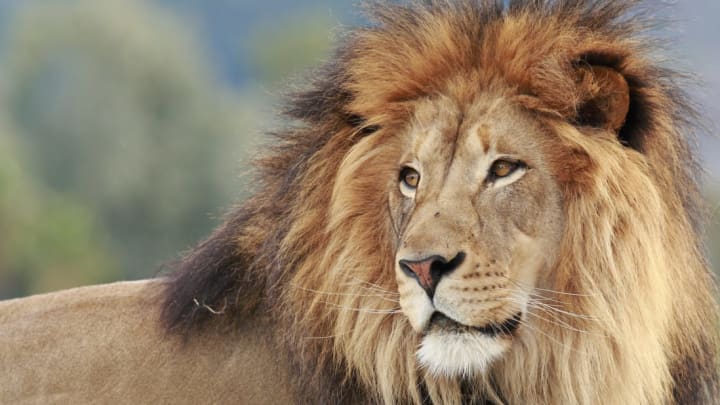Why Do Male Lions Have Manes?

Much like the defining features on many animals, a lion's mane is all about attracting the ladies.
A century or two ago, biologists like Charles Darwin postulated that lions grew a thick mane of hair around their necks to protect that vulnerable area from attacks by other lions. Over time, however, field biologists observed lion behavior (from a safe distance) and noted that when lions fought one another, they rarely went for the mane region. Instead they regularly attacked from the rear, targeting the back and the hindquarters.
So, if the mane isn’t designed for protection, what is its purpose? Why, propagation of the species, of course. In the sweltering heat of areas where lions gather, a huge ring of long hair around the face and neck does nothing to help cool the body. That bushy fringe is an inviting home to a variety of parasites, and it also makes the lion stand out against the scenery (a desirable trait for a fashion model but not so much for an ambush hunter). With all those negatives attached to sporting neck hair, the only positive is that it takes some sturdy genes and a very healthy constitution for a male to live long enough to grow a substantial mane. Over the centuries, lionesses have twigged onto the fact that a huge, lush, thick, impressive head of hair equals a virile baby daddy who has the stones to not only sire her cubs but also to aggressively protect them along with the rest of the pride. Even more attractive? A dark, flowing mane, according to studies.
Have you got a Big Question you'd like us to answer? If so, let us know by emailing us at bigquestions@mentalfloss.com.